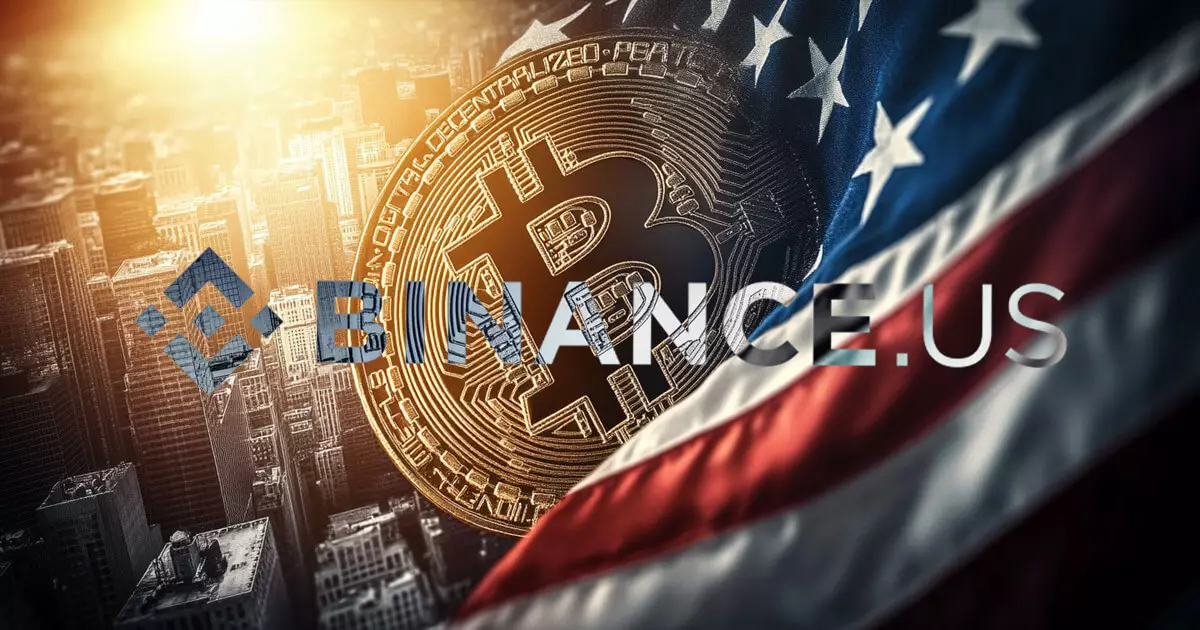In today’s digital age, the media wields unprecedented power, especially in sectors like cryptocurrency that are rapidly evolving and often misunderstood by the mainstream. Recently, Changpeng Zhao, the former CEO of Binance, vehemently refuted a Wall Street Journal report suggesting he was engaged in investment discussions with the family of former President Donald Trump regarding Binance.US. Zhao’s dismissal of the allegations is not merely a defense of his business interests but also indicative of a larger struggle against the media’s tendency to create narratives that could undermine both individual reputations and entire industries.
The question that arises is: what purpose does such misinformation serve? Zhao’s remarks highlight a significant concern among crypto enthusiasts—that the media often lacks a nuanced understanding of the rapidly-changing legal and regulatory landscapes of cryptocurrency. Accusations like those made by the WSJ can not only hinder the progress of companies like Binance but can also contribute to a pervasive anti-crypto sentiment that resonates in political circles.
Political Ramifications and the Fragility of Trust
Zhao’s assertion that the WSJ article was a calculated attack on both Trump and the cryptocurrency landscape is worth scrutinizing. If we view the crypto industry through a center-right lens, it’s evident that the intersection of politics and business can become a murky waterway. Zhao stated that he sensed remnants of a “war on crypto” emanating from the previous administration. Indeed, the political milieu surrounding cryptocurrency has been fraught with tension, largely due to the fear of financial instability and the misunderstanding that often accompanies innovation.
Zhao pointed out the absurdity of his alleged discussions, stating he hadn’t spoken about a Binance.US deal with anyone. Such declarations are essential to maintaining trust, not just between business leaders and their partners, but also in the broader sphere of public opinion. When the media fabricates stories or speculates without sufficient evidence, they exacerbate the skepticism that already surrounds the crypto sector. This skepticism becomes a political weapon that can easily be wielded against figures like Zhao and organizations like Binance, leading to detrimental policy decisions that could stifle innovation.
The Human Element: Real Lives, Real Consequences
When we delve deeper into Zhao’s personal comments regarding presidential pardons, the emotional weight becomes apparent. He remarked, “No felon would mind a pardon,” which underlines the absurdity of being the only individual in U.S. history punished for a single BSA (Bank Secrecy Act) charge. This reveals not just a systemic flaw but also the real-life impact that laws and policies can have on individuals who are pioneering advancements in finance and technology.
In a broader sense, his situation underscores the precarious position of innovators within a legal framework that is often slow to adapt. Zhao’s public plea reflects an ongoing conversation about accountability and redemption in the age of information overload. It raises the moral question of whether innovators should be afforded the same latitude in their mistakes as traditional businesses that have weathered similar storms.
Why Zhao’s Response Is a Call to Arms
Changpeng Zhao has effectively positioned himself as a bulwark against the pitfalls of legacy media narratives. His consistent criticisms of the WSJ and other traditional outlets for perpetuating what he calls FUD (fear, uncertainty, and doubt) encourage his followers to adopt a more critical stance toward the information they consume. This is a necessary mindset, especially in industries as volatile and transformative as cryptocurrency.
In an atmosphere where sensationalism frequently overshadows journalistic integrity, Zhao’s advocacy for skepticism becomes not just a personal message but a communal clarion call. It prompts all stakeholders—investors, users, and entrepreneurs alike—to question the agenda behind various narratives that infiltrate their sector. This critical approach is not merely beneficial; it is imperative for fostering a thriving environment that encourages innovation.
The implications of Zhao’s firm rebuttal to the WSJ stretch far beyond his individual circumstances. They illuminate a broader battle over the narrative surrounding cryptocurrency and reveal the stakes involved in this rapidly evolving financial landscape. By questioning the integrity of the media and advocating for transparency, Zhao embodies the very spirit of resilience that is essential for anyone navigating the tumultuous waters of a revolution.

